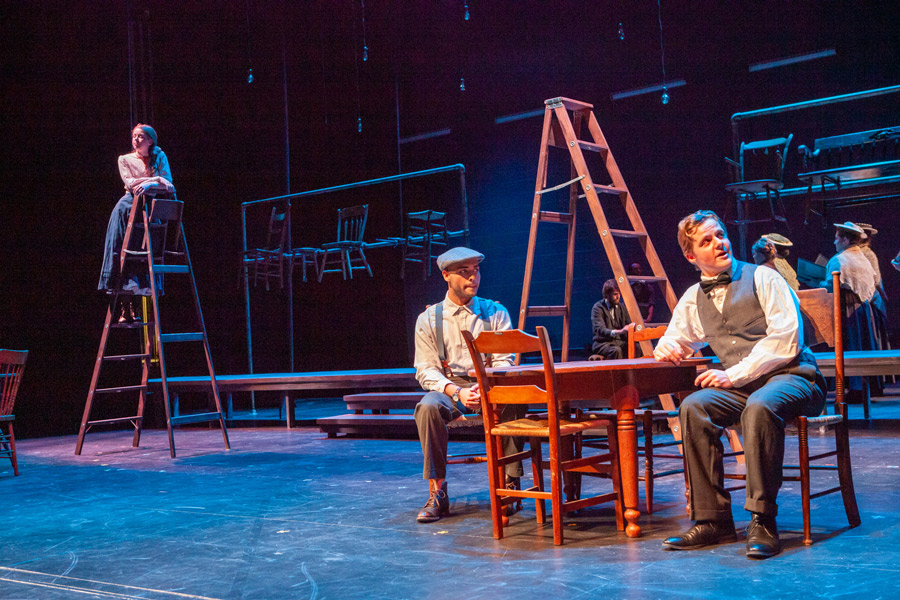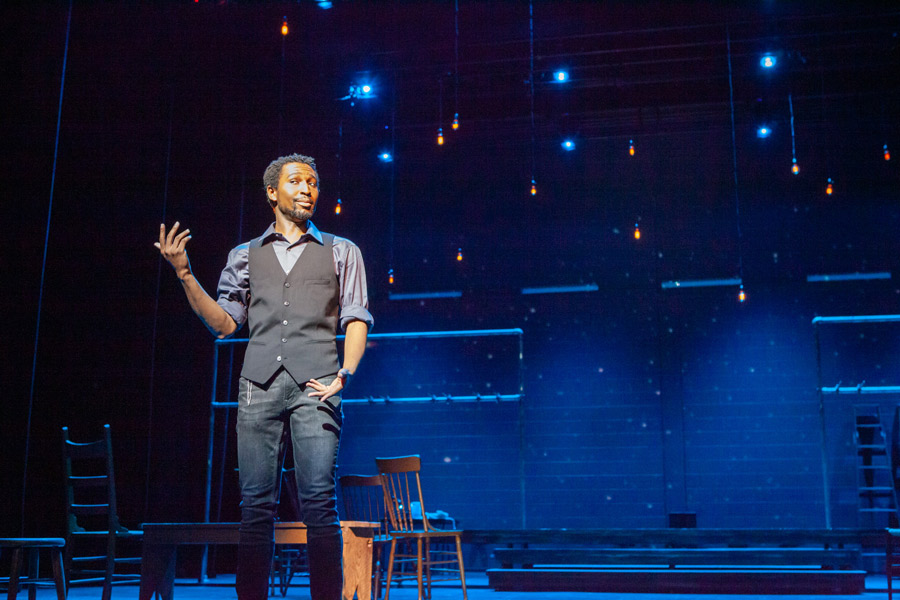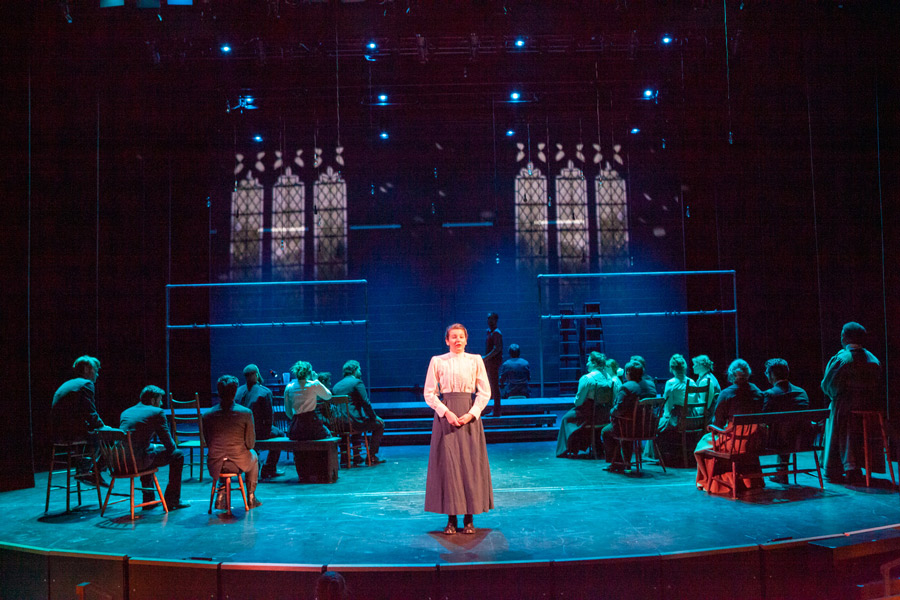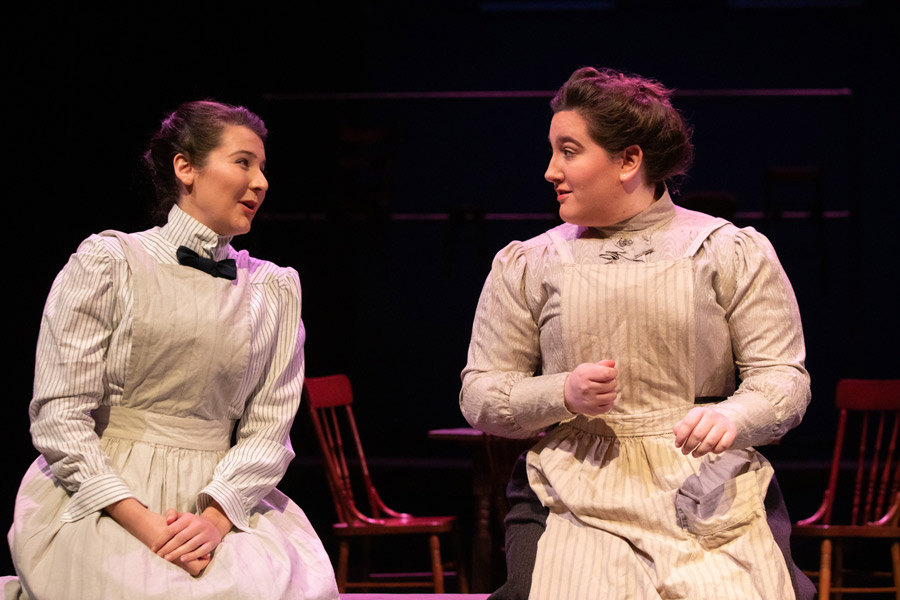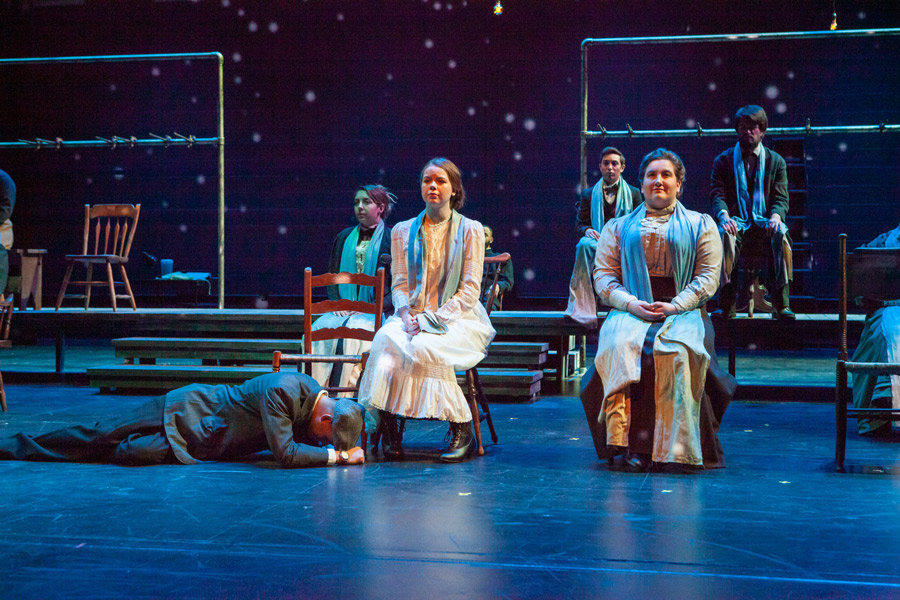- Apply
- Visit
- Request Info
- Give
Eastern Theatre Presents Thornton Wilder's 'Our Town'
Written by Molly Boucher
Published on November 24, 2019
The Pulitzer-Prize winning play titled “Our Town” was presented at Eastern Connecticut State University from Nov. 19-24. Produced by Eastern’s Performing Arts Department and the Drama Society, the play was written by Thornton Wilder and directed by Tim Golebiewski. The three-act play follows the tight-knit community of Grover’s Corner spanning the years 1899-1913, presenting the themes of community, love, family and death throughout the production.
The opening act of the show, titled “Everyday Life,” starts before the first line is spoken. While audience members trickled into the theatre, actors from the show walk in one by one, in costume, and reset the stage. The quiet hum of crickets played in the background, and most notably, the character of the Stage Manager, played by theatre major Austin Washington, sat on a stool and watched the audience.
The set was simple, with only a few tables, chairs and benches taking up the stage. Cast members use imaginary props instead of actual props, such as a book or cup. When the show starts, the Stage Manager introduces the show to the audience. He also references events occurring far later in history, such as the Treaty of Versailles, and even mentions the deaths of characters occurring later in the play. Eastern’s production also includes a creative use of technology, such as night stars that glow every time the Stage Manager speaks, or the fact that when he isn’t acting in a scene, the manager sits at a desk in the back of the stage.
“Our Town” incorporated 21 student actors who take on characters living in the town. Every person knew each other in some way, whether it be the local milkman or the drunk church pianist. The small community of Grover’s Corner was set in New Hampshire, with many of the town locals having never been outside of town.
The story primarily follows two families, the Webbs and the Gibbs. Presented as a love story between Emily Webb and George Gibbs (played by theatre majors Emily Kelly and Jake Buckley), the story grows with their relationship. The second act, titled “Love and Marriage,” leads up to the marriage of George and Emily, with both families anxious about the impending marriage. Sound effects such as thunder and light rain contribute to setting the scene.
Director Golebiewski emphasizes the importance of the audience in this play, writing, “The production of Our Town will be performed six times at Eastern, and each time will be unique, because you, the audience, are a part of our town.” He also comments that he hopes this play will make an impact on the audience. “Please take a moment to look around and take in who you’re with and where you are, because as soon as you step outside into our larger community, this town will be a memory too,”
Set nine years later, the final act opens with characters streaming onto the stage, wearing blue scarves. The audience later learns that these scarves signify that the character has passed on. With the sound of wind played through the theatre and a dimly lit stage, an eerie tone was set. The audience soon learns that Emily Webb has passed away. While she argues against and questions her death, she soon learns that she can’t go back, and that humans don’t appreciate the small moments in life. Golebiewski comments on this, writing that Wilder’s playwright is telling us that, “we rely on each other in our community, and that we should take in ‘the now’ is an especially important one today.”
The climax of the show occurs when Emily expresses to the Stage Manager, “I can't go on. It goes so fast. We don't have time to look at one another.” Emily’s final outburst leads to her realization that humans should spend more time appreciating their moments together.The play ends with everyone in the play joining the characters that have passed, showing that life is not permanent, and those in “Our Town” will never have those moments or that life repeated.



